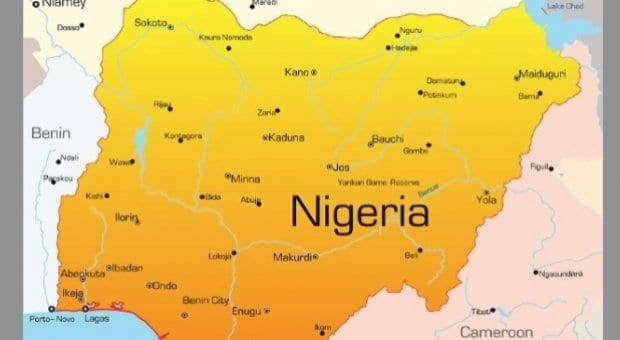Nigerian activists are reporting the arrests of several gay men in the country’s northern state of Bauchi, according to The Associated Press (AP).
The reports say police are working their way through a list of more than 160 suspects.
Human rights activist Dorothy Aken’Ova, executive director of the International Center for Reproductive Health and Sexual Rights, indicated that the arrests started over the Christmas holidays.
In December, a report on the Punch website said authorities in Jigawa State, to the north of Bauchi, arrested seven people between the ages of 18 and 25 for allegedly breaking Nigeria’s existing anti-gay measures.
United Nations human rights commissioner Navi Pillay says the new legislation makes an “already bad situation much worse.”
According to its provisions, anyone who “registers, operates or participates in gay clubs, societies and organisation, or directly or indirectly makes public show of same sex amorous relationship in Nigeria commits an offence and is liable to conviction to a term of 10 years imprisonment.” It also makes it an offence to support “the registration, operation and sustenance of gay clubs, societies and organisations, processions or meetings in Nigeria,” the sentence for which is 10 years upon conviction. Anyone who enters into marriage with a person of the same sex faces up to 14 years in prison, and those who witness, perform or aid the solemnization of a gay marriage face a 10-year prison term.
Pillay adds, “Rarely have I seen a piece of legislation that in so few paragraphs directly violates so many basic, universal human rights. Rights to privacy and non-discrimination, rights to freedom of expression, association and assembly, rights to freedom from arbitrary arrest and detention: this law undermines all of them. In addition, the law risks reinforcing existing prejudices towards members of the LGBT community, and may provoke an upsurge in violence and discrimination.”
According to the statement, Pillay hopes Nigeria’s Supreme Court will review the new law to determine its constitutionality, noting that “disapproval of homosexuality by the majority on moral or religious grounds does not justify criminalizing or discriminating against LGBT persons.”
Aken’Ova says the legislation will threaten the work done to fight HIV/AIDS.
Noting there were about 3.4 million people living with HIV in Nigeria in 2012, both UNAIDS and the Global Fund fear the new law will hamper efforts to deliver HIV services and will lead to an increase in homophobia and violence based on real or perceived sexual orientation or gender identity.
Canada, the United States and the United Kingdom also condemned the measure.
Canadian Foreign Affairs Minister John Baird called on Nigeria to repeal the law that “further criminalizes homosexuality.”
US Secretary of State John Kerry also registered the American government’s concern.
“Beyond even prohibiting same sex marriage, this law dangerously restricts freedom of assembly, association, and expression for all Nigerians. Moreover, it is inconsistent with Nigeria’s international legal obligations and undermines the democratic reforms and human rights protections enshrined in its 1999 Constitution,” Kerry says in a Jan 13 statement.


 Why you can trust Xtra
Why you can trust Xtra


